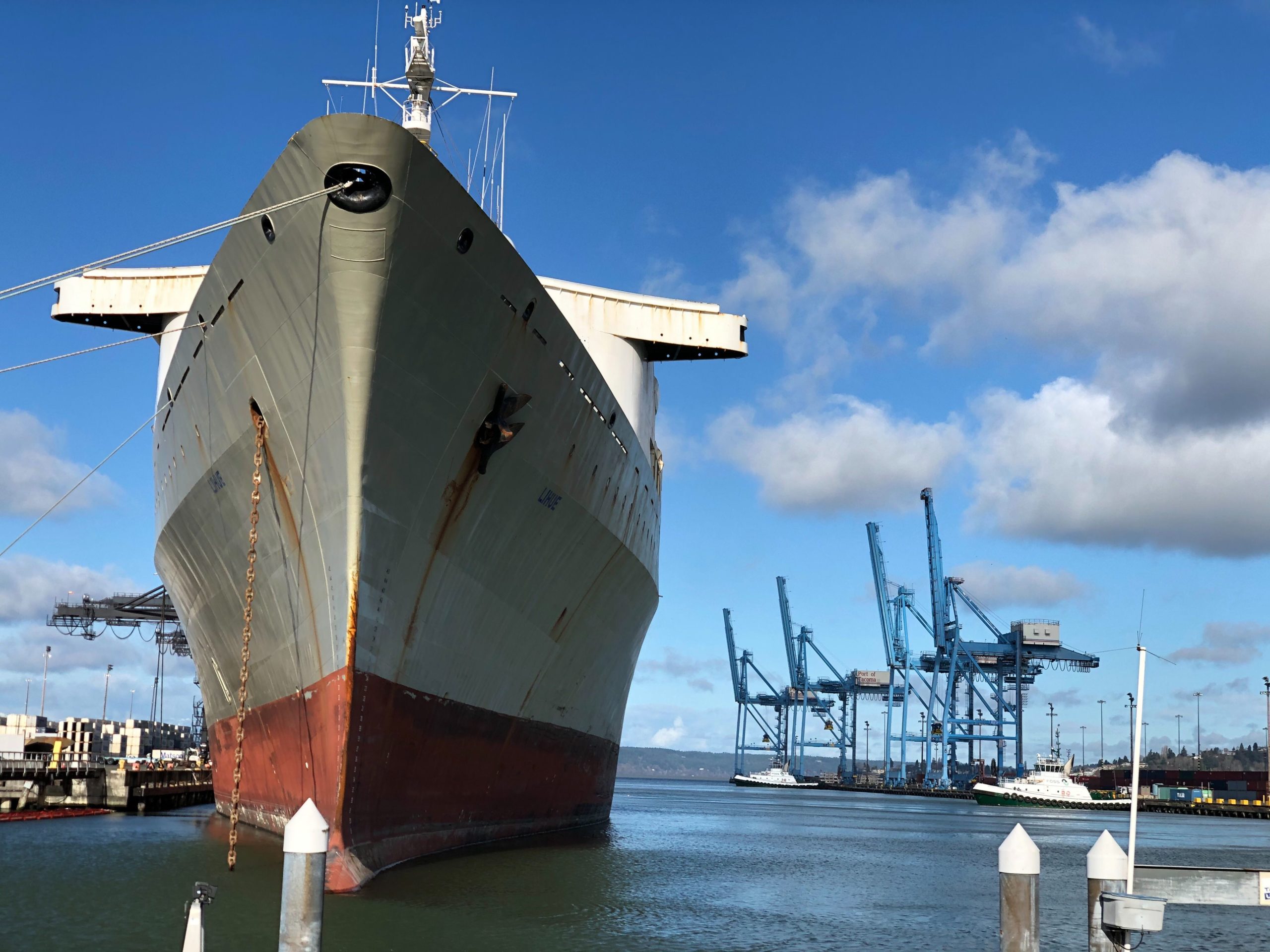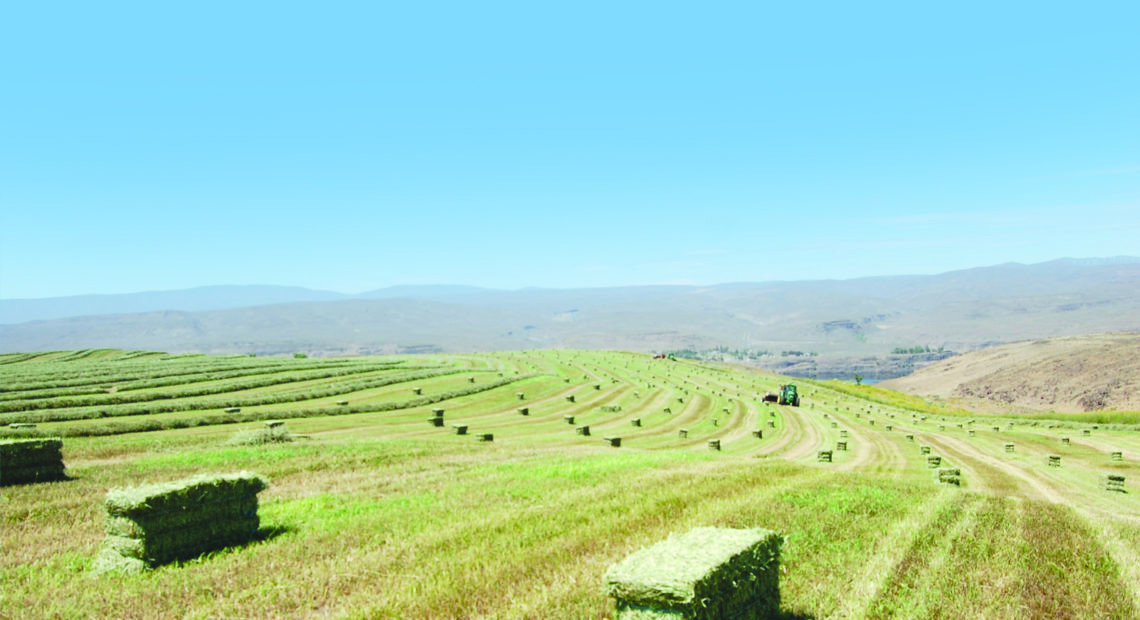
I Said Hay, What’s Going On? Supply Chain Breakdown Hurting Big Northwest Ag Exports
READ ON
It really frustrates Mark Anderson when he sends a truck to a Northwest port hauling a container of alfalfa or timothy hay and the truck rolls back without an empty shipping container to refill.
Anderson’s hay feeds everything from bunnies to camels to top race horses in 30 different countries.
He puts his compressed hay in containers to protect it. Once at port, the containers are loaded on and off container ships like large blocks of colorful legos.
When there aren’t enough shipping containers at Northwest ports, Anderson’s drivers have to return home without them, all the way to Ellensburg, Washington, where Anderson Hay is based.
That means he’ll have to send them back to get empty containers just to turn around and fill them with his premium hay for export.
Anderson owns one of the largest forage and grain export companies in the U.S. He ships and farms out of the Northwest and California.
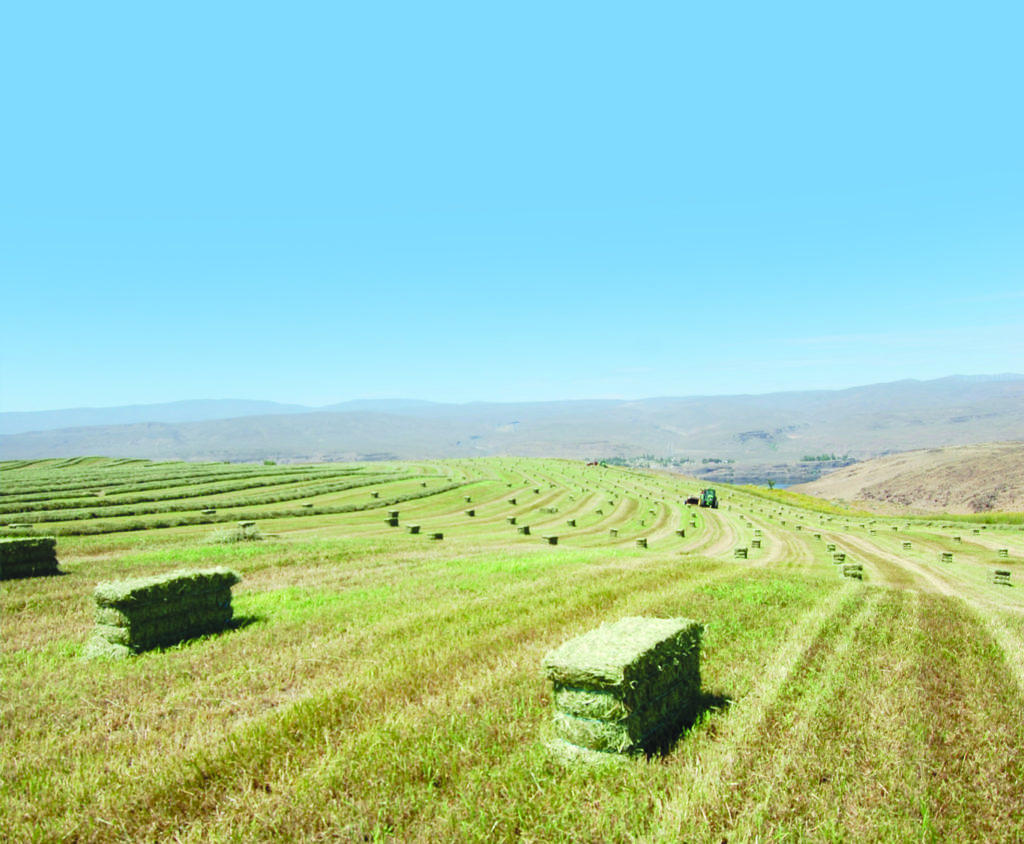
File photo. Central Washington is a hay growing and exporting powerhouse. Courtesy of Anderson Hay
A lack of containers is one symptom that the shipping and trucking supply chain is seriously breaking down.
“There’s just a tremendous amount of complexity that goes with the unpredictability,” Anderson says. “So then that’s what we’re dealing with on a daily basis.”
Shipping Down
Consumer spending is down during the coronavirus pandemic. So much, that international shipping is down.
John Wolfe is chief executive officer of the Northwest Seaport Alliance that includes the ports of Seattle and Tacoma.
“There’s less cargo moving through the gateway,” Wolfe says. “And therefore, less vessel capacity available for the exports.”
In fact, an unprecedented number of ships have canceled their calls to the ports of Seattle and Tacoma. So far this year, there have been 32 canceled international sailings since January 1. That has created the shortage of shipping containers at those Northwest ports.
Other large West Coast and East Coast ports are also having so-called “blank” sailings, including Vancouver, B.C., Long Beach and Los Angeles, New York, New Jersey and Savannah, Georgia.
So far this year in Los Angeles, the port has seen 43 canceled sailings as of April 30, compared to 17 last year in about the same time period.
Experts who follow the Ports of Seattle-Tacoma say to think of it like a bus system: Pull one bus out of a route, and many ports are short of carrying capacity.
New Normal
Mark Anderson says without a predictable shipping schedule and pricing for his hay and other products, his business model of heavy exports could be in real trouble. He wonders what the new normal for globalized trade will be.
“We need good imports into our country to have the opportunity to have good rates to have hay be competitive with other countries as we price it around the world,” Anderson says. “So, it’s very concerning as we see the interruptions.”
Related Stories:
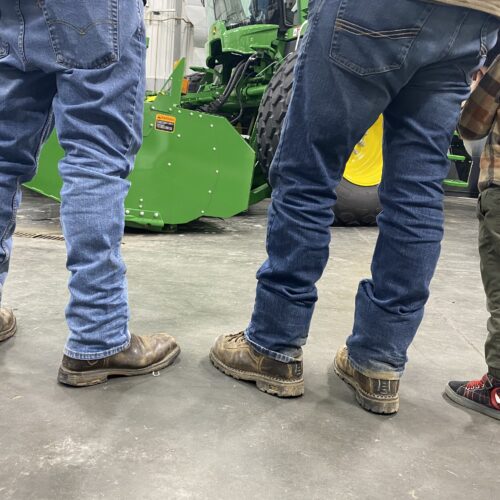
Mid-Columbia farmers cautiously optimistic about second Trump administration, farmworkers feel differently
Farmers, and a future farmer, regard a new John Deere swather at RDO, a large tractor dealership in Pasco. (Credit: Anna King / NWPB) Listen (Runtime 4:07) Read In Pasco

Tacoma City Council member joins state pipeline safety committee
Twenty-five years ago, the Olympic Pipeline ruptured in Bellingham, Washington, killing three people. In the aftermath, Washington state created its Citizens’ Committee on Pipeline Safety, meant to advise on regulation to keep communities around pipelines safer.
The committee still functions today, but Amanda McKay, who serves on it, said that increased interest and awareness of pipeline safety issues in the early 2000s has now fallen. Groups that advocate for pipeline safety and regulations, like her’s, want to change that.
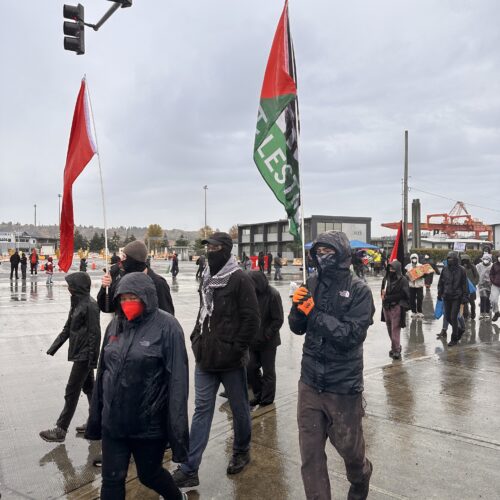
Palestine supporters block Port of Tacoma to protest U.S. military aid to Israel
Since early Monday morning, hundreds of protestors have been blocking the three road entrances into the Port of Tacoma in an attempt to stop workers from loading a United States military supply vessel, the Cape Orlando, with weapons and military equipment.

